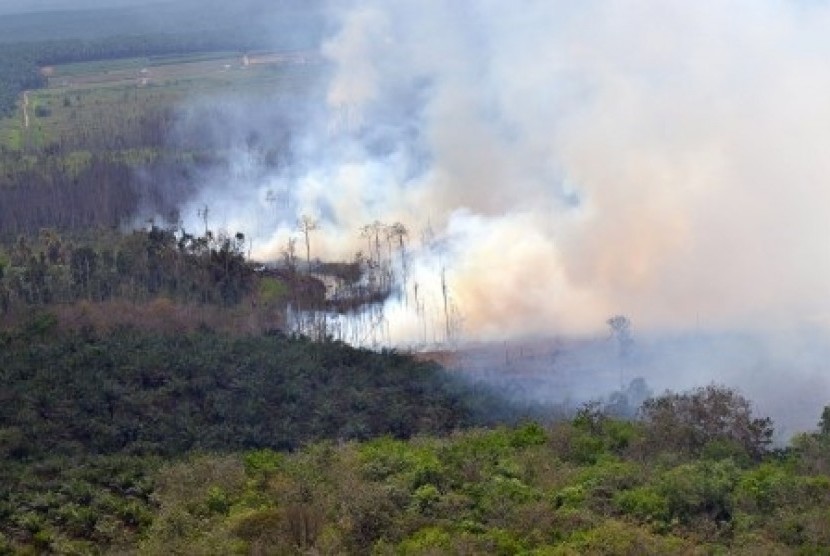REPUBLIKA.CO.ID, JAKARTA -- Deforestation or illegal logging in Indonesia became a public concern. Activists of the Indonesian Legal Aid Institute (LBHI), Nandang Wahyu assessed there were four causes of deforestation.
First, indirect causes of deforestation and forest degradation in Indonesia, such as ineffective spatial planning. Second, the problems associated with tenure.
Third, inefficient and ineffective of forest management. Fourth, weak law enforcement and rampant corruption in the forestry sector and land.
"Poor governance, spatial planning which was not in line between the center and regions, unclear land tenure rights, and weak capacity in forest management (including law enforcement) become the fundamental problem in the management of forests in Indonesia," said Nandang, on Sunday, May 31.
On the other hand, deforestation rates remain high was because the political and economic system that was corrupt. Agents of deforestation considered that natural resources, especially forests as a source of revenue that could be exploited for political purposes and personal gain.
"In the book of Images of Indonesian forest situation in 2001 said that the high rate of deforestation is caused by government policy, especially national production wood policy," said Nandang.
Nandang cited the case in the Aru Islands, Maluku was a reflection of the weakness of New Permit Delays policy (PPIB). Permission for sugarcane plantation area of 67 thousand hectares instead given over natural wooded land in the Aru Islands which has been included in the territory of PPIB.
Professor of Forestry Policy from Bogor Agriculture University (IPB), Hariadi Kartodiharjo said, based on the results of studies in Central Kalimantan and West Kalimantan also found a number of companies were eligible for PP 60/2012 related to moratorium on forest. According to Hariadi, the location was appropriate with criteria for the PP, but it was not known whether the available land replacement.
"It should be available the substitute area which later forested at a cost of plantation companies in the area of 595,516 hectares in Central Kalimantan, and 53,325 hectares in West Kalimantan," said Hariadi.
Hariadi added, the replacement area should also be free of conflict and laid-limits to the cost of the plantation companies, then designated as state forest.


